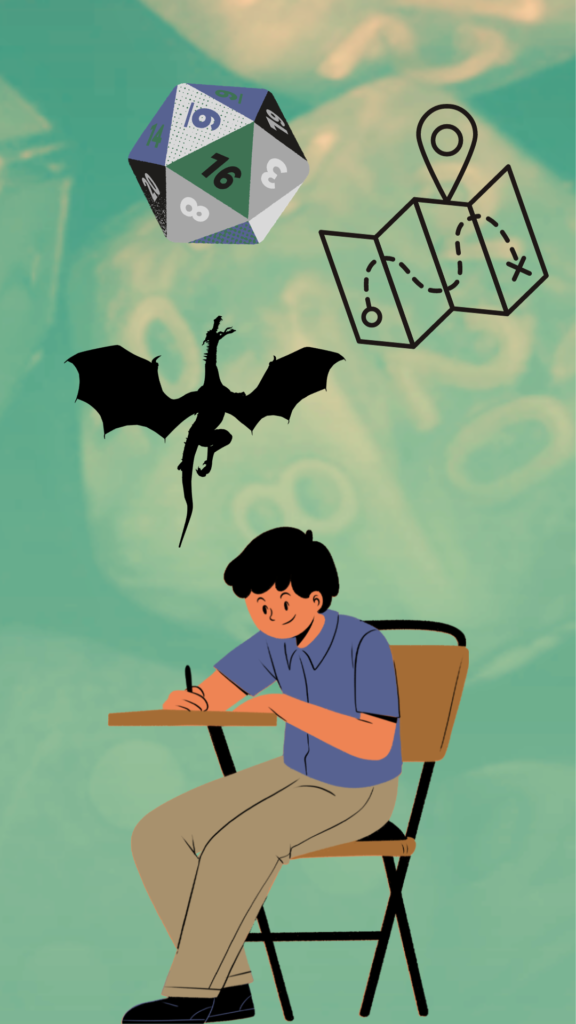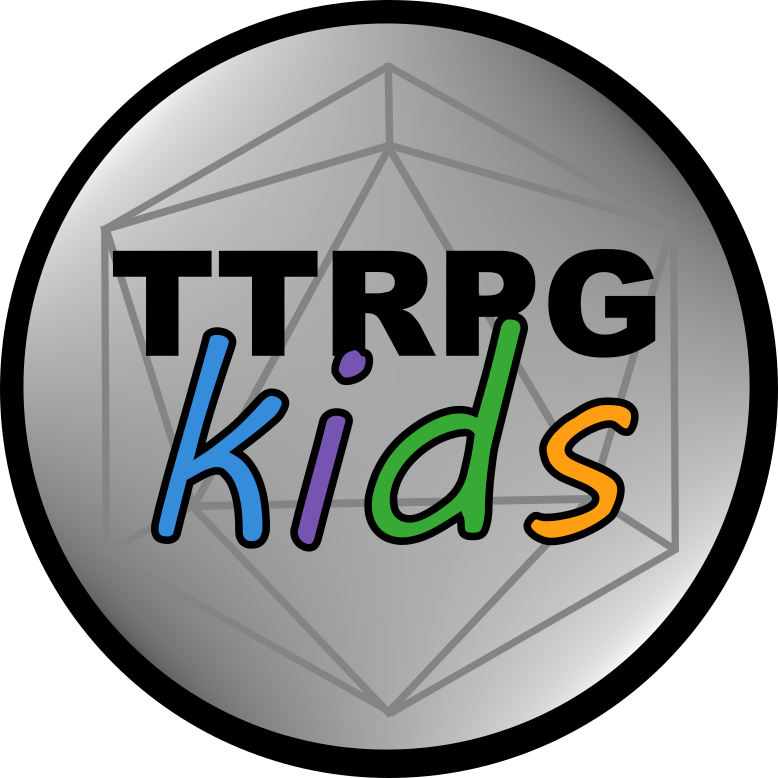Tips and Tricks: Using Journaling Games to Grow Writing Skills
Jump to:
- Co-journaling with non-writers
- Journaling for newer writers
- Journaling for older kids and adults
- Journaling games to try out
Also, check out my list of journaling games to find a game to try these tips with!
Co-journaling with non-writers
Co-journaling on a solo-journaling TTRPG is GREAT!

First, I want to cover how to play journaling games with a player who can’t write yet because I primarily play TTRPGs with a non-writer.!
I started playing TTRPGs with my kid when he was 2..5 years old, and, as of writing this article, he’s now 5. When we first started playing TTRPGs, he couldn’t read and write. Now, he’s able to read and write just a little bit, and he’s super interested in learning more. I think co-journaling helped grow that curiosity in wanting to learn.
To run a journaling game with a non-writer, you’ll pretty much need to read prompts to them and then transcribe their responses onto the journaling page. This works great even with games that are intended to be solo-journaling TTRPGs so long as you are OK with stepping back a little and facilitating your player’s story by reading and writing for them or have an agreement to take turns with prompts or discuss decisions.
Co-journaling shows WHY it’s important to learn to write
What this does is show young kids how stories are made and written down so you can re-read them later AND gives a reason for kids to want to learn to write so they can do it on their own one day. It shows what kind of power being able to read and write can have a lot more than if you are just reading story books and having them do handwriting worksheets. Journaling brings those two sides together into one..
We will write our story, based on kiddo’s answers to the game’s prompts and how he rolled, and then read it back at the end with my finger following along on the page with the words I’ve written. It shows that words have meaning, and he’s been there the whole time seeing me write them..
Engaging in journaling in other ways
There are also many ways to engage players in the journaling process even if they can’t write words – journaling can be through other forms of creative expression too!
Two games that we’ve played before, The Familiar Finders and Wanderlust, both included areas for drawing and coloring animals or scenes, which my kid was easily able to do without needing to read or write.

You can also introduce scrapbooking elements, record voice for an audio journal, and more so that writing doesn’t need to be a barrier. These other methods can be used as a primary journaling method or to supplement your co-journaling so kids can still get hands-on with the process even if they don’t have the pen and paper themselves.
Journaling for newer writers
For newer writers, these games are PERFECT for giving fun opportunities to write at the pace and level that’s within their capability.
Because it isn’t a school assignment and is, instead, part of a game, there’s a lot less pressure on if the writing will be good enough or if someone is going to judge it. Writing becomes viewed as something to facilitate fun and as something to be enjoyed instead of as something you just need to do so you can get a grade in class or because some grown up told you that you’ll need to be able to write one day..
It can also be very flexible. Answers to prompts don’t need to be long, so kids who take a while to sound out words or can focus on using smaller and fewer words if they want.
For example, one prompt in a game that we played was about what we saw in a room that we entered.

For someone with developed writing skills, they might write about the color and patterns in the textured wallpaper and the deep brown of the polished hardwood floors then shift their focus to cabinets lining the walls filled with all kinds of delicate brass instruments before shifting again to the scraggly shop owner who is looking at a gem through a pair of strange goggles while standing behind a counter littered in slips of paper covered in unreadable notes..
It paints a wonderful picture and could easily fill a page in a few minutes, and that’s great!
However, someone who is just starting to write might take the same amount of time to sound out and write down a response more like this::
The room is blue. There is a tall man. He has a red gem.
And this is also wonderful! It’s at a level that the writer can facilitate, gives them practice with imagining the scene and describing it, helps with practicing expression and penmanship, and still is great for answering the prompt.
Journaling for older kids and adults

Many older kids and adults who have reading skills and vocabulary can still struggle with writing for a number of reasons and often have personal barriers or fears about writing. Journaling games can still be fun, and they can be a low pressure tool to help grown ups too.
I have heard many stories of how youth, particularly in the 8-14 range, discovered a love of reading through playing TTRPGs because the books required for playing the game were fun and engaging and interesting and not school work. I have also seen many adults at my game tables who don’t really read much outside of TTRPGs… but they really read the TTRPG books.
I think the same effect happens with writing focused games.

If the game is interesting enough and fun and not school work (or “business work”), it can spark that same shift. You might not particularly love writing still, but it’s a means to an end, which is playing a fun game that you really want to try.
Then, through playing that game, regardless of if you think you did “well”, you’ve broken down the first barrier to writing more… and it was probably fun too.
The goal here is to not see writing as a chore or something that “I really should practice more” but as something that is needed for this cool game you want to play… and then it also happens to help you practice writing and get more comfortable with it. That’s really important to emphasize if using this with students – focus on the fun and the game, and let the added benefits of skill building be a bonus.
Journaling games to try out
If you’re now interested in trying out journaling games yourself or with your kid(s), check out my list here!
Many of the journaling TTRPGs on the list have reviews from when I’ve actually played them, either on my own or with my kid, so you can see what’s involved before jumping in, and they’re all great for kids and adults alike to try out using the methods and mindsets above.
I hope this article helped to showcase how awesome and powerful journaling TTRPGs can be! Thank you for reading along, and… happy gaming!
If you liked this post, make sure to subscribe to the TTRPGkids monthly newsletter to stay up to date on the latest reviews, tips and tricks, game and podcast list updates, and more! Thank you for playing tabletop RPGs with your kids and sharing this awesome hobby with the next generation!



1 thought on “Tips and Tricks: Using Journaling Games to Grow Writing Skills”